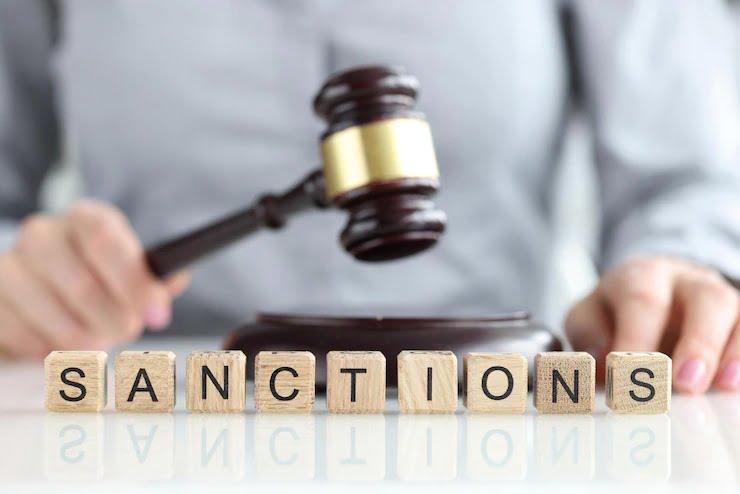Sanctions compliance applies to client onboarding, transaction monitoring, and transaction screening to mitigate money laundering and terrorist financing (ML-TF) threats. Although there are various types of sanctions, including economic, diplomatic, environmental, sports, and military, the AML-CFT compliance largely covers economic and financial sanctions levied on individuals, entities, nations, and specific groups to control ML-TF risks.
Currently, there are approximately 250 watchlists in 195+ nations worldwide for regulated financial and non-financial institutions to monitor individuals and entities. The watchlists continuously change and update various formats, languages, and data structures. The blog discusses major sanctioning bodies that comprise nations, unions, and international bodies, each mentioning their distinct sanctions list, which does not always align with one another.
Sanctions List Monitoring
At present, the most renowned and powerful sanctions are those professed by the European Union (EU), Office of Foreign Asset Control (OFAC), United Nations Security Council (UNSC), and Her Majesty’s Treasury (HMT). Regulated and obliged entities must consider multiple watchlists to comply with comprehensive industry and region-specific sanctions screening guidelines. Sanctions list or AML watchlist is a multi-source ML-TF potential risk compiling of banned individuals or entities, regulatory and due diligence listings for the regulated financial and non-financial institutions. All the Consolidated Lists mentioned below get continually updated. Hence the firms and financial entities are required to operate sanctions screening solutions to remain AML-CFT compliant.
The U.S. Office Of Foreign Assets Control (OFAC) Sanctions List
Administered by the U.S. Department of Treasury (DoT), the OFAC sanctions list aims at the worldwide individuals and entities that raise potential threats to the security and integrity of the United States.
The OFAC Specially Designated Nationals List (SDN) is the most sought-after global watchlist encapsulating “individuals and companies owned or controlled by, or acting for or on behalf of, targeted countries” and terrorists and drug traffickers of the non-targeted countries; the second one is the Consolidated Sanctions List (CSL) comprising non-SDN data sources.
The European Union (EU) Sanctions List
The EU sanctions list is part of a comprehensive EU Common Foreign and Security Policy (CFSP). Similar to other sanctions, economic and trade restrictions exist on individuals, businesses, governments, and external groups. The European Union states must comply with the EU sanctions policies to jointly and effectively combat money laundering and terrorism threats.

Office of Financial Sanctions Implementation (OFSI), UK sanctions list
THE OFSI regulations apply to all business entities and financial institutions, either located or established in the U.K. The United Kingdom’s financial sanctions list, a division of Her Majesty’s (HM)Treasury, OFSI, mentions sanctioned investments and freezing of assets. The Office of Financial Sanctions imposes sanctions and checks on AML Compliance for businesses and organizations.
Canada Sanctions
The United Nations Act (UNA), the Special Economic Measures Act (SEMA), and the Justice for Victims of Corrupt Foreign Officials Act (JVCFOA) are the three main acts under which the Canadian government can impose sanctions. To check on the Politically Exposed Persons (PEPs) connected to corruption practices, there is a special Freezing Assets of Corrupt Foreign Officials Act enforced by the government.
United Nations Sanctions
United Nations Security Council (UNSC) imposed sanctions is a consolidated watchlist of individuals and entities followed by regulated and obliged entities worldwide. United Nations sanctions include freezing assets, market access restrictions, travel bans, trade embargoes of specific products, etc. The UN sanctions are listed for both individuals and entities. The UN sanctions are the most important financial sanctions, and global industries must comply with them. There are countries and groups on the UN sanctions list, including Afghanistan, Central Africa, The Republic of the Democratic Republic of the Congo, Democratic People’s Republic of Korea, Iran, ISIL and Al-Qaida, Libya, Mali, Somalia, Sudan, and Yemen.
Why a Sanction Screening Software is Important
A sanctions screening software performs real-time batch screening, identity checks, and transaction monitoring. It simultaneously performs regulatory checks to produce a comprehensive AML-CFT report. In an end-to-end AML sanctions screening software, there are other important Interpol sanctions, Politically Exposed Persons (PEPs) watchlists from the security commission, and specific reputation plus negative news checks such as Adverse Media screening.
IDMerit’s IDMaml solutions assure frictionless sanctions screening against unverified AML reports that may result in reputational damage to your business and losing valuable customers affecting your bottom line. We offer a complete AML watchlist and sanctions screening guidelines to global financial and non-financial businesses.
For client onboarding, transaction monitoring, sanctions screening, and KYC solutions contact the IDMerit AML watchlist expert today.
